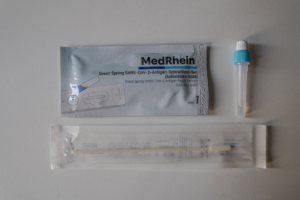
China’s Long March-3B rocket launched from the Xichang Satellite Launch Center in September 2019, carrying two satellites of BeiDou Navigation Satellite System.
Photo: Wang Xin (AP)
In an effort to prevent falling rockets from landing on populated areas, China tested a parachute system designed to control where its rocket boosters land back on Earth.
Astronomers Could Soon Get Warnings When SpaceX Satellites Threaten Their View
China successfully carried out the first test of its parachute system during a recent launch of its Long March 3B rocket, the China Academy of Launch Vehicle Technology announced on Friday. The rocket delivered a BeiDou navigation satellite to orbit, lifting off from the Xichang Satellite Launch Center in Sichuan Province on May 17, China’s state media Xinhua reported.
The news, which was delivered nearly a month after the test, doesn’t specify where the rocket booster landed. Instead, Xinhua stated that the rocket booster was brought down by the parachute to a “predetermined location,” and that the parachute narrowed the landing area by 80%.
Based on previous reports, the parachute system is designed to significantly narrow down the landing area for some of China’s Long March rocket boosters from 55 miles (90 kilometers) to 18 miles (30 kilometers). The system uses a parachute and a gliding control system installed on the side boosters of China’s Long March 3B, 3C and 2F rockets.
The rocket boosters don’t make it all the way to space, instead reaching an altitude of 31 miles (50 kilometers) above the surface, Jonathan McDowell, an astronomer at the Harvard-Smithsonian Center for Astrophysics, told Gizmodo during an interview in March.
By bringing the boosters down gently, China also has a better chance of reusing them for future launches. “We’ll also make the landing area into a landing bed by adding cushion, making it soft as a mattress,” Teng Haishan, deputy chief engineer of the No. 508 Institute of China Academy of Space Technology (CAST), told CCTV in March. “As a result, the booster will be completely recyclable without any damage.”
Source: https://gizmodo.com/china-tests-parachute-control-falling-rocket-boosters-1850529845







